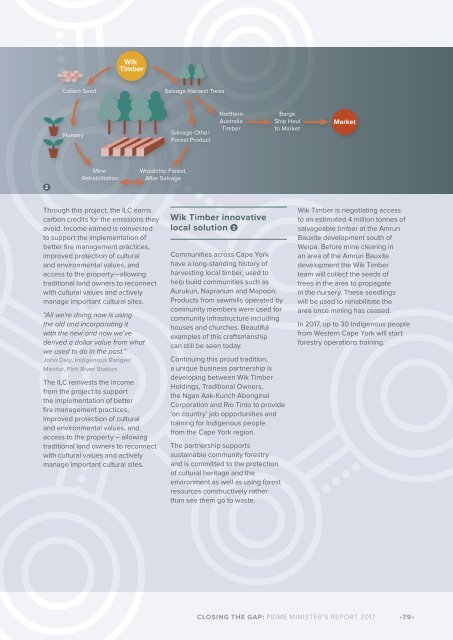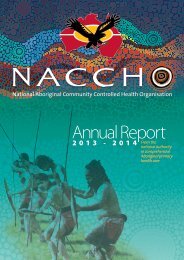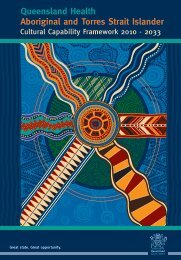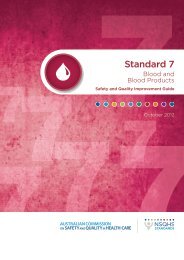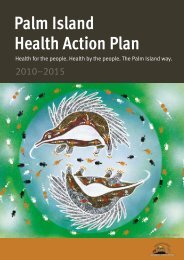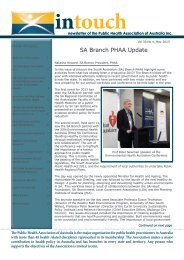CLOSING THE GAP
ctg-report-2017
ctg-report-2017
Create successful ePaper yourself
Turn your PDF publications into a flip-book with our unique Google optimized e-Paper software.
Wik<br />
Timber<br />
Collect Seed<br />
Salvage Harvest Trees<br />
Nursery<br />
Salvage Other<br />
Forest Product<br />
Northern<br />
Australia<br />
Timber<br />
Barge<br />
Ship Haul<br />
to Market<br />
Market<br />
2<br />
Mine<br />
Rehabilitation<br />
Woodchip Forest,<br />
After Salvage<br />
Through this project, the ILC earns<br />
carbon credits for the emissions they<br />
avoid. Income earned is reinvested<br />
to support the implementation of<br />
better fire management practices,<br />
improved protection of cultural<br />
and environmental values, and<br />
access to the property—allowing<br />
traditional land owners to reconnect<br />
with cultural values and actively<br />
manage important cultural sites.<br />
“All we’re doing now is using<br />
the old and incorporating it<br />
with the new and now we’ve<br />
derived a dollar value from what<br />
we used to do in the past.”<br />
John Daly, Indigenous Ranger/<br />
Mentor, Fish River Station<br />
The ILC reinvests the income<br />
from the project to support<br />
the implementation of better<br />
fire management practices,<br />
improved protection of cultural<br />
and environmental values, and<br />
access to the property – allowing<br />
traditional land owners to reconnect<br />
with cultural values and actively<br />
manage important cultural sites.<br />
Wik Timber innovative<br />
local solution 2<br />
Communities across Cape York<br />
have a long-standing history of<br />
harvesting local timber, used to<br />
help build communities such as<br />
Aurukun, Napranum and Mapoon.<br />
Products from sawmills operated by<br />
community members were used for<br />
community infrastructure including<br />
houses and churches. Beautiful<br />
examples of this craftsmanship<br />
can still be seen today.<br />
Continuing this proud tradition,<br />
a unique business partnership is<br />
developing between Wik Timber<br />
Holdings, Traditional Owners,<br />
the Ngan Aak-Kunch Aboriginal<br />
Corporation and Rio Tinto to provide<br />
‘on country’ job opportunities and<br />
training for Indigenous people<br />
from the Cape York region.<br />
The partnership supports<br />
sustainable community forestry<br />
and is committed to the protection<br />
of cultural heritage and the<br />
environment as well as using forest<br />
resources constructively rather<br />
than see them go to waste.<br />
Wik Timber is negotiating access<br />
to an estimated 4 million tonnes of<br />
salvageable timber at the Amrun<br />
Bauxite development south of<br />
Weipa. Before mine clearing in<br />
an area of the Amrun Bauxite<br />
development the Wik Timber<br />
team will collect the seeds of<br />
trees in the area to propagate<br />
in the nursery. These seedlings<br />
will be used to rehabilitate the<br />
area once mining has ceased.<br />
In 2017, up to 30 Indigenous people<br />
from Western Cape York will start<br />
forestry operations training.<br />
<strong>CLOSING</strong> <strong>THE</strong> <strong>GAP</strong>: PRIME MINISTER'S REPORT 2017<br />
•79•


